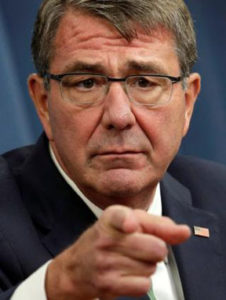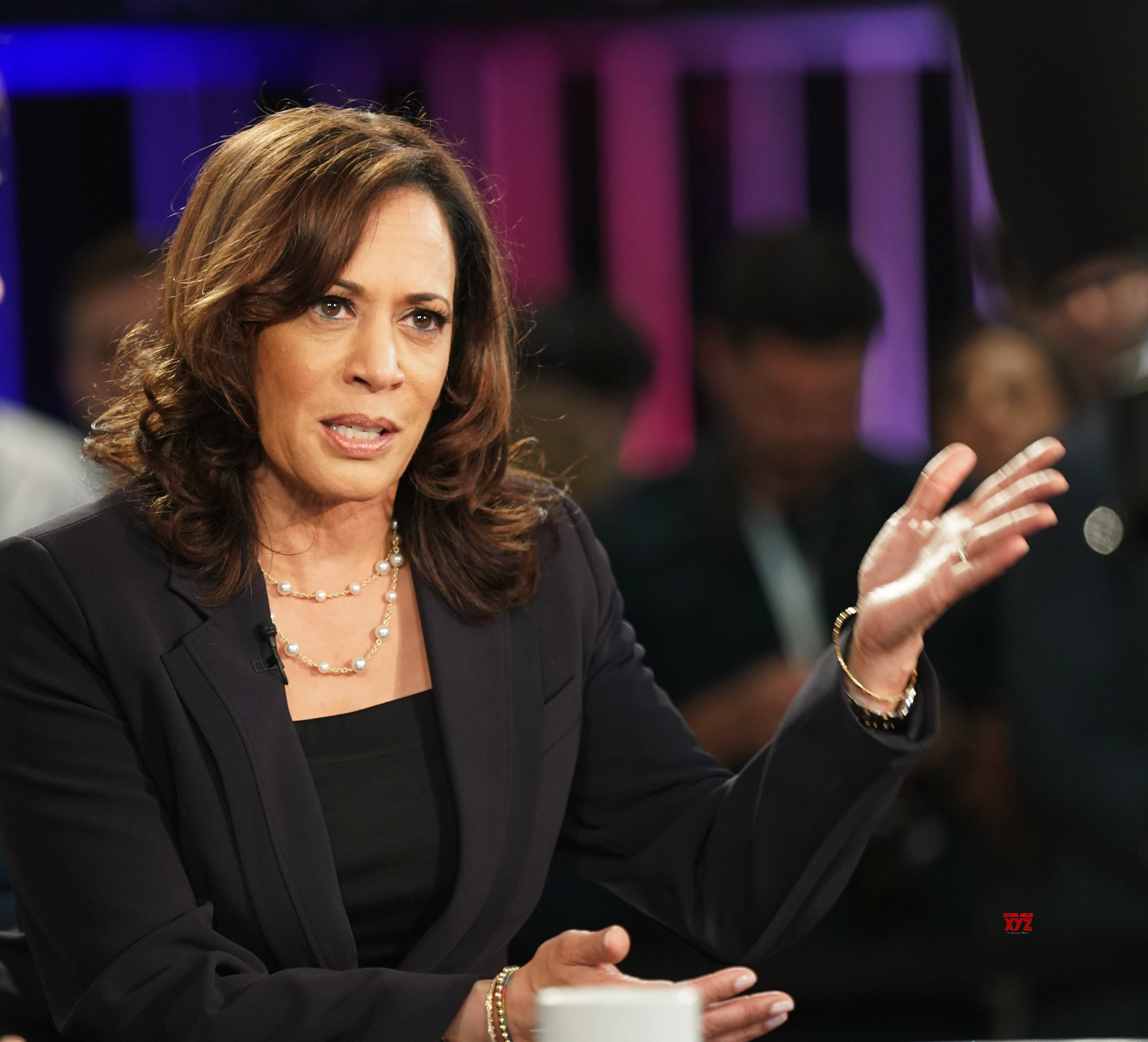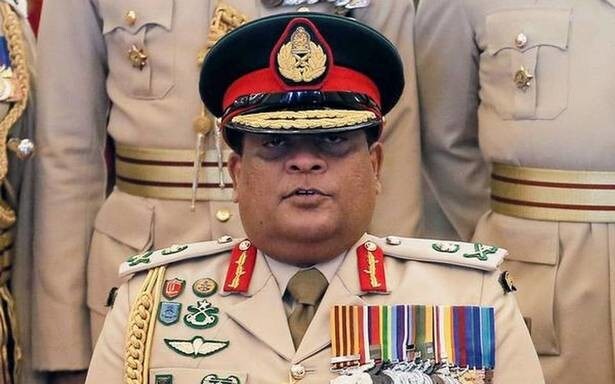 WASHINGTON: In a setback to Pakistan, the US has blocked USD 300 million military aid to it after Defense Secretary Ashton Carter declined to give a certification to the Congress that Pakistan is taking sufficient action against the dreaded Haqqani network.
WASHINGTON: In a setback to Pakistan, the US has blocked USD 300 million military aid to it after Defense Secretary Ashton Carter declined to give a certification to the Congress that Pakistan is taking sufficient action against the dreaded Haqqani network.
In the absence of Congressional certification, the Pentagon has blocked disbursement of USD 300 million to Pakistan under Coalition Support Fund, which is essentially reimbursement money for the expenses made by Pakistan Army in support of US operations in Afghanistan.
“The funds (USD 300 million) could not be released to the Government of Pakistan at this time because the (Defense) Secretary has not yet certified that Pakistan has taken sufficient action against the Haqqani Network per the Fiscal Year 2015 National Defense Authorization Act (NDAA) requirement,” Pentagon Spokesman Adam Stump said.
Pakistan has reimbursed USD 700 million of the USD one billion they were authorized in fiscal year 2015 under the Coalition Support Fund (CSF).
“With the Secretary’s decision, there is no additional FY15 CSF available to Pakistan,” Stump said.
The Washington Post, which first reported about it, described this withholding of US military assistance to Pakistan as a “potential blow” to US-Pak ties.
Noting that June 30 was the deadline for the Department of Defense to submit its omnibus reprogramming request to Congress, Stump said in order to meet that deadline Carter requested a reprogramming of USD 300 million remaining in 2015 Coalition Support Funds originally authorized for Pakistan.
“The secretary decided to request reprogramming of the funds to retain the ability to use those funds for other requirements,” he said, adding that this decision “does not reduce” the significance of the sacrifices that the Pakistani military has undertaken over the last two years.
“We continue to be encouraged by Pakistan’s operations in North Waziristan and elsewhere in the FATA. Pakistan’s efforts have reduced the ability of some militant groups to use North Waziristan and the FATA as a safe haven for terrorism.
However, the Afghan Taliban and the Haqqani network continue to operate in other locations in Pakistan,” Stump said.
Pakistan has been authorized USD 900 million in fiscal 2016 CSF. Of that, USD 350 Million is subject to a Secretary of Defense certification that Pakistan has taken sufficient action against the Haqqani network, he said.
“Pakistan is the largest recipient of CSF reimbursements, having received roughly USD 14 billion since 2002,” Stump said.
“This is the first time there’s been a Secretary Defense’s certification required,” he added.
The Haqqani Network has carried out a number of kidnappings and attacks against US interests in Afghanistan, as well as Afghan government and civilian targets.
The group is also blamed for several deadly attacks against Indian interests in Afghanistan including the 2008 bombing of the Indian mission in Kabul that killed 58 people.
Nadeem Hotiana, spokesman, Embassy of Pakistan, said Pakistan will continue its fight against terrorism and ensure that areas cleared by the security forces do not slide back into the control of terrorist networks.
Coalition Support Fund, he said, is one of the many cooperative arrangements between Pakistan and the United States to pursue common objectives.
“These reimbursements enable the United States to support Pakistan’s ongoing counter-terrorism efforts in a manner that serves shared interests of both countries. Under this arrangement, both countries continue to work closely to build on the gains achieved over the past years that have improved security in the tribal areas,” Hotiana said.
He argued that Pakistan has conducted a large number of military operations that have sequentially dismantled and destroyed terrorist infrastructure on its side on the international border with Afghanistan.
“Pakistan will continue to work with its partners in a long-term effort for ensuring security and stability in these areas,” Hotiana said.
Meanwhile, the Pentagon’s decision was welcomed by eminent experts who said that this was long due.
“This step to hold Pakistan accountable for its failure to crackdown on the Haqqani network was long overdue,” Lisa Curtis, an eminent South Asia expert, from the Heritage Foundation told PTI.
“The move reflects that the US Congress has finally lost patience with Pakistan’s facilitation of militants directly undermining the US mission in Afghanistan,” she said.
“Fifteen years after 9/11 attack, Pakistan stubbornly perpetuates its policy of harboring the Taliban and Haqqani network. It’s about time the US holds back some aid due to Pakistan’s damaging policies,” Curtis added.
“I see it as a natural progression over time reflecting American disenchantment over repeated Pakistani promises which are never fulfilled,” Aparna Pande, director, Initiative on the Future of India and South Asia at Hudson Institute, a Washington DC-based think-tank said.
“For the last few decades Islamabad-Rawalpindi have always promised they will take action against terror groups and requested both for time as well as assistance (economic and military). In earlier years Washington was willing to give benefit of doubt but it appears that is changing,” she said.
“The Obama administration’s decision to withhold a portion of the Coalition Support Funds from Pakistan shows just how much US-Pakistan ties have changed since the days following the 9/11 attacks, when the Bush administration initiated a counter-terrorism-based assistance relationship with relatively few strings attached,” Shamila Chaudhary, a former White House official and now a senior South Asia fellow, International Security Program at New America, a think-tank, said.
“However, I don’t think the CSF determination means the relationship is headed towards a downward spiral,” she said.
“There is still a great deal of bilateral engagement between the two countries on a range of issues, and the US firmly believes Pakistan must play a role in conversations about a political resolution in Afghanistan –which means there are still some equities remaining in the relationship that must be considered and protected – even as the US ramps up the pressure on Pakistan,” Chaudhary said.–PTI






